第126章 CHAPTER XXXII. THE FRIEND OF PEACE.(2)
Hence I have not dared to identify my name with that of my great ancestor, Frederick the Second, and call myself Frederick the Third, for a name imposes obligations, and I know very well that I am no hero and genius, like Frederick the Great. I assumed, therefore, the name of Frederick William, as the successor of my peaceable father, Frederick William the Second. It is true, Frederick William the Second has waged a war against France, but precisely that war has satisfied me that a war with France may involve Prussia in the greatest dangers and calamities. I participated in the campaign of 1792, gentlemen, and I must honestly confess that I feel little inclination to resume a war which, at best, will only produce sacrifices for us, and no reward whatever."
"There is a reward, however, your majesty," said Count Haugwitz, solemnly. "It is the preservation of the thrones, and of monarchical principles. We cannot fail to perceive that the thrones are being menaced, and those republics of America, France, and Italy are teaching the nations very dangerous lessons--the lessons of self- government and popular sovereignty. That insatiable General Bonaparte has attached these two words to his colors, and if the princes do not combat him with united strength, and try to take those colors from him, he will soon carry them into the midst of all nations, who will rapturously hail him, and desire to follow the example of France."
"I have no fears for myself," said the king, calmly; "but even if I should be so unfortunate as to be obliged to doubt the love and fidelity of my people, the thought of my personal safety and of the fate of my dynasty ought not to exert a decisive influence upon my resolutions concerning the welfare of my country. I told you before, I want to be the father of my country; a good father always thinks first of the welfare of his children, and tries to promote it; only when he has succeeded in doing so he thinks of himself."
"A good father ought to strive, first of all, to preserve himself to his children," exclaimed Count Haugwitz. "An orphan people is as unfortunate as are orphan children. Your people need you, sire; they need a wise and gentle hand to direct them."
"And yet you want to put the sword in my hand, and that I should lead my people to war and carnage," said the king.
"In order to make peace bloom forth from war and carnage," said Count Haugwitz, gravely. "The bloody monster of war is stalking now through the whole world, and, as it cannot be avoided, it is better to attack it, and to confront it in a bold manner. Russia, Austria, and England are ready to do so, and they stretch out their hands toward you. Refuse to grasp them, and, for the doubtful and dangerous friendship of France, you will have gained three powerful enemies."
"And if I grasp their hands I shall not advance the interests of Prussia by shedding the blood of my people, but only those of Austria and Russia," replied the king. "If France should be greatly weakened, or even entirely annihilated, serious dangers would arise for Prussia, for Austria and Russia would unite in that case, for the purpose of menacing our own security. They would easily and quickly find compensations for themselves, and Austria especially would profit by the losses of France; for she would recover the Netherlands, which Prussia is to conquer now by the blood of her soldiers, and acquire, perhaps, even Bavaria. But what compensation would fall to the share of Prussia? Or do you believe, perhaps, Austria, from a feeling of gratitude toward us, would cede to Prussia a portion of her former hereditary possessions in the Netherlands? No, no--no war with France! Let Russia and Austria fight alone; they are strong enough for it. I say all this after mature deliberation, and this is not only my opinion, but also that of distinguished and experienced generals. General von Tempelhof, too, is of my opinion, and confirmed it in a memorial which I asked him to draw up for me."
"Your majesty requested the Duke of Brunswick, also, to write a memorial on the intended coalition against France," said General von Kockeritz, hastily. "On our arrival I received this memorial and read it, according to your majesty's orders. The duke persists in the opinion that it is necessary for the honor, glory, and safety of Prussia to join the coalition, and to oppose France in a determined manner. Your majesty, I must confess that I share the view maintained by the duke."
"So do I!" exclaimed Count Haugwitz, "and so do all your subjects.
Sire, your whole people ardently desire to chastise this arrogant France, and to sweep these hosts of Jacobins from the soil of Germany. Oh, my king and lord, only make a trial, only raise your voice and call upon the people to rally around your standards, and to wage war against France! You will see them rally enthusiastically around the Prussian eagles and fervently bless their courageous king. And when you begin this struggle, sire, you and your army will have a formidable, an invincible ally. That ally is PUBLIC OPINION, sire! Public opinion requires this war, and public opinion is no longer something dumb and creeping in the dark, but something that has a voice, and that raises it in ringing, thundering notes in the newspaper and magazine. One of these voices spoke a few weeks ago in the Political Journal, as follows: 'Can our monarch abandon the German empire? Can he look on quietly while France is making preparations for attacking Prussia as soon as her turn shall come?
It is only necessary for us to think of Italy, Switzerland, and Holland in order to appreciate the friendship of France.' [Footnote: